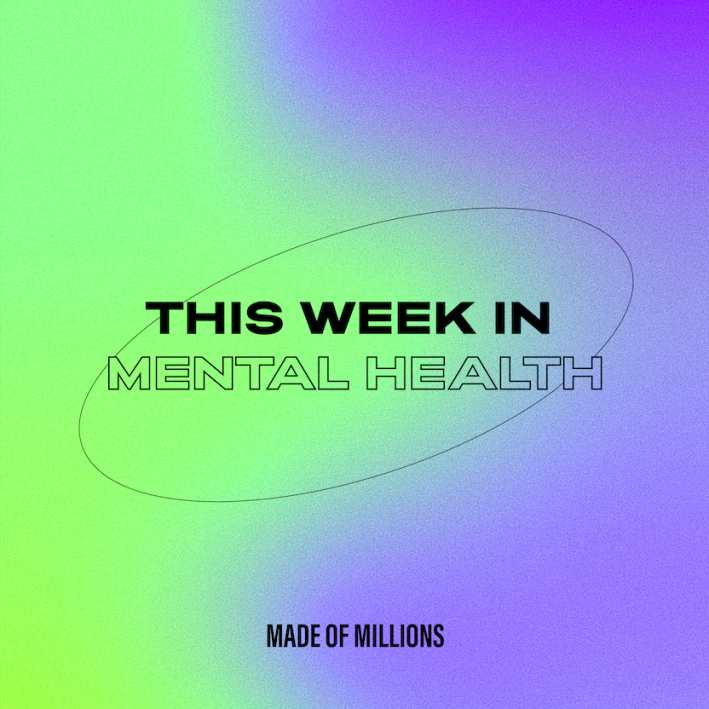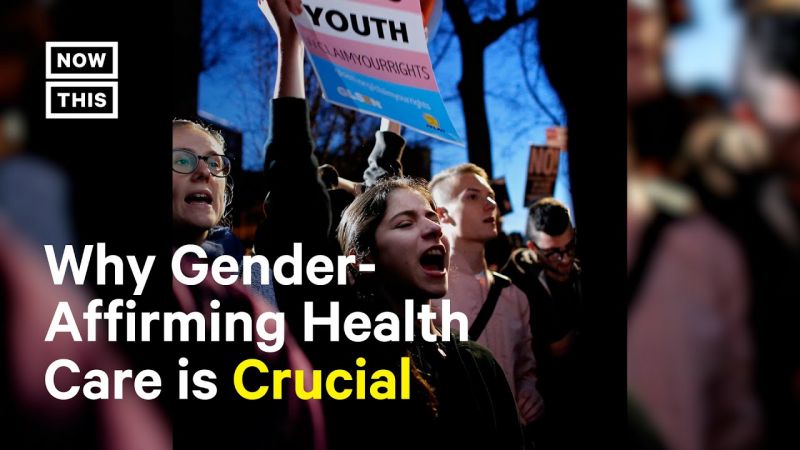This Week In Mental Health
The latest on research and advocacy for the week of January 10th.
Escrito por Esther Fernandez

01 Research looks at how gender-affirming hormones affects mental health, how ketamine may be able to treat depression, and how having kids may help with pandemic depression.
02 Dr. Jake Goodman starts a conversation about medication among medical professionals.
TW// Mentions of suicidality and eating disorders
Conversations about mental health have grown exponentially over the last decade, with more and more people committing to personal and collective wellness. While we have a ways to go before mental health awareness, education and treatment are accessible to all, each day brings new and positive strides within the field.
Our This Week In Mental Health series covers the latest happenings in research, treatment, human interest stories, and more. Stay updated on new developments so you’re better equipped to navigate the world, and most importantly, your own recovery.
Here’s what’s happening the week of January 10th, 2022.
Research
Early Access To Gender-Affirming Hormones Linked To Better Mental Health
Transgender adolescents who have access to gender-affirming hormone therapy have better mental health in adulthood. Researchers looked at survey data of over 27,000 transgender people from 2015, and found that compared to those without gender-affirming hormones, those with access were about 50 percent less likely to have suicidal ideation. Researchers urge legislators to recognize that restricting hormone use until adulthood can negatively affect mental health.

How Hormone Therapy Helps Trans & Non-Binary Youth
Peter Thiel-Backed Psychedelics Company Gets FDA Approval To Study Ketamine Therapy
Atai Life, a German company, has been approved to start clinical trials for R-ketamine, which aims to help depression for patients that are treatment resistant. The ketamine will be non psychedelic, and the trials were approved by the FDA with plans to start this year. Researchers are eager to see results and offer R-ketamine at home — a new approach compared to other psychedelics, such as psilocybin and ketamine, that must be taken in a doctor's office.
Having Kids At Home May Reduce Pandemic Depression
Adults who lived with children during the pandemic are less likely to have mental health problems. Researchers from the University of Michigan looked at 2020 survey data of almost 600k adults, and it was found that guardians struggled less than those without kids. Researchers are looking into why this is, with some hypothesizing that increased socializing and sense of purpose when looking after kids may help with mental health.
Negative Attentional Bias in Adults with ADHD Indicates Depression
Adults with ADHD are more likely to have depression when they are more inclined to remember negative information. Researchers had participants look at facial expressions and compared how they paid attention to certain emotions. For those with ADHD and depression, they looked at happy emotions less frequently.
Substance Use Disorders Contribute to Excess Mortality in Eating Disorders
Patients with eating disorders who also have substance use disorder have a higher risk of mortality. Researchers looked at data of over 20,000 people with eating disorders in Denmark from 1994 to 2015. It was found that death risk “increase[s] substantially” when patients with eating disorders also have substance use disorder. Researchers say that it’s important to stop substance use disorders for those with eating disorders, particularly those with anorexia and bulimia, to prevent excess mortality.
Advocacy
Doctor Reveals He Takes Mental Health Medication For Depression
Dr. Jake Goodman is a resident physician who is using his large following on social media to advocate for mental health. In an Instagram post, he shared how he takes medication for his mental health and that he wants to eliminate the stigma among medical professionals. Despite the risk associated with sharing, he believes that this generation of medical professionals are changing the conversation around mental health.
Apoya nuestro trabajo
Nuestra misión es cambiar la manera en que el mundo percibe la salud mental.



















